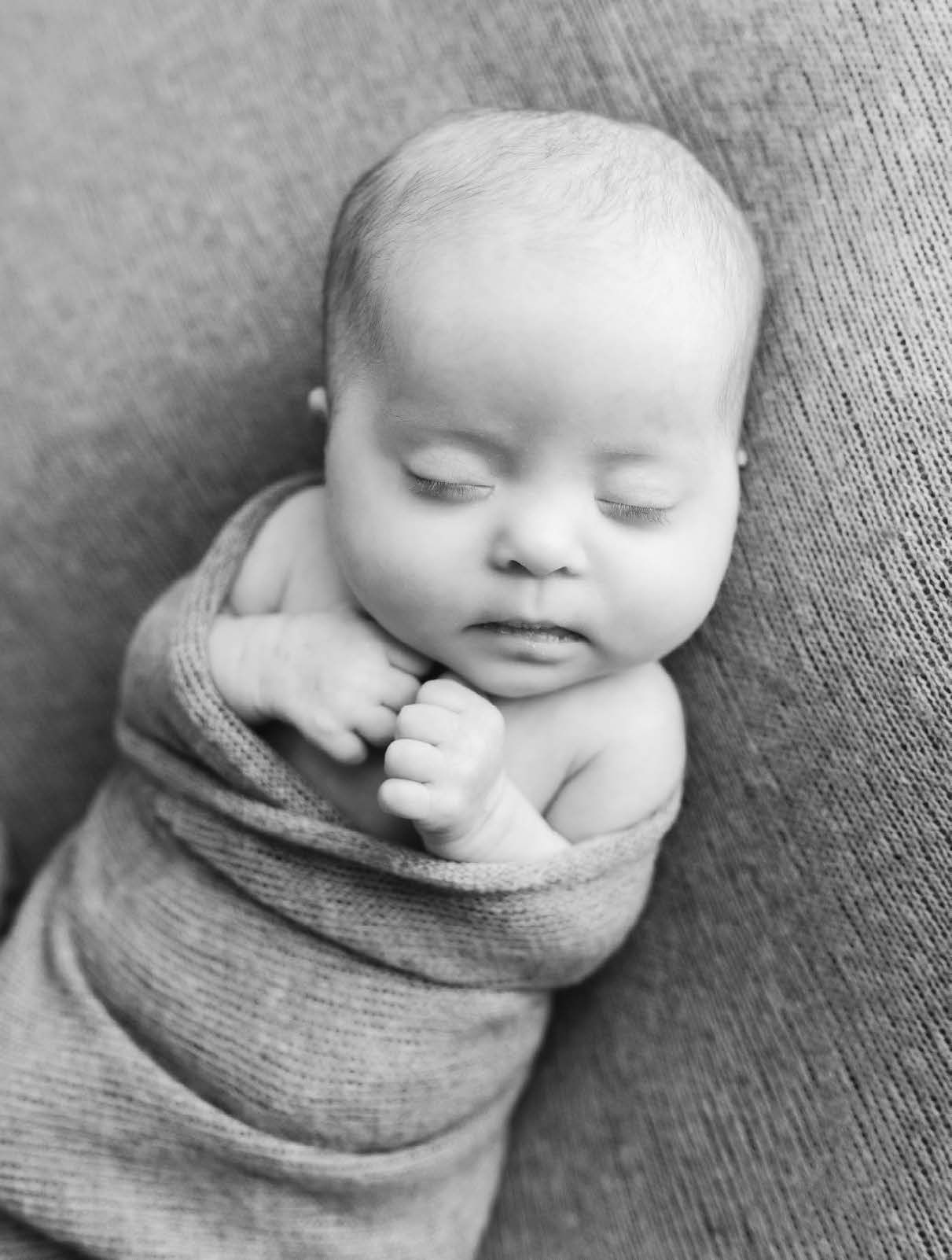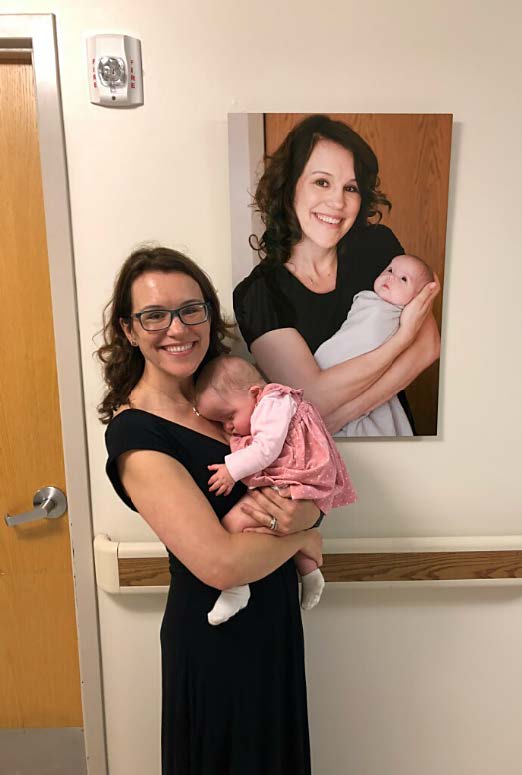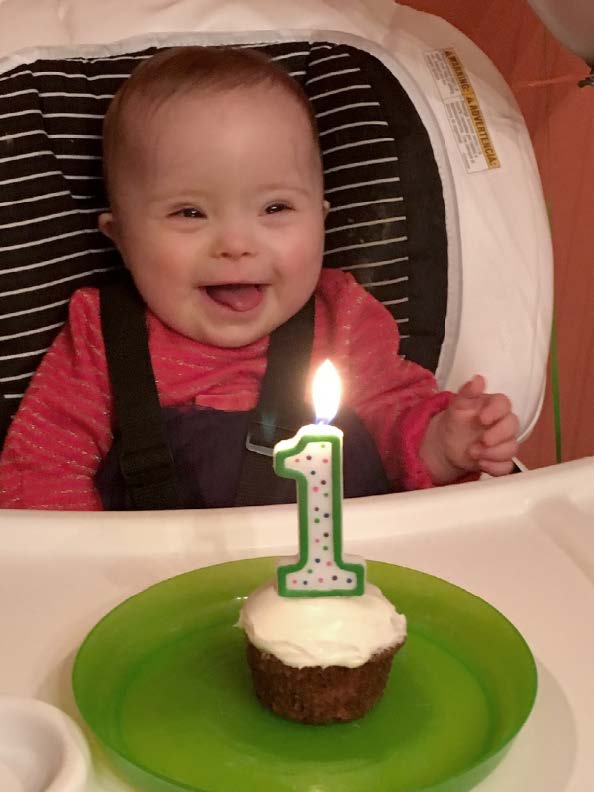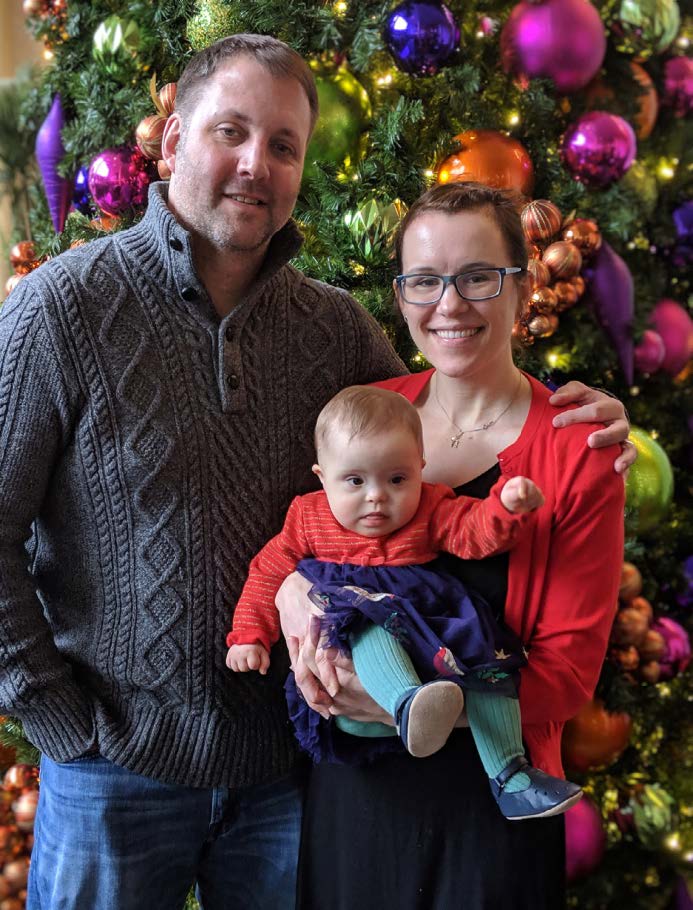"Most people hear the negative things about people with intellectual disabilities. It's hard to conceptualize what a child can do if they have disabilities," said Margot.
But, with her time at Special Olympics, Margot knew Hannah could do whatever she put her mind to.

RNEY BY RENEE DEASE


In 2016, I interviewed Margot, who had applied to work at Special Olympics in the role of Health Director. She impressed me and others in her interview and I knew whomever landed this position would be my next boss, so I especially wanted to get to know her. Margot accepted the position and we began our work relationship. As I got to know Margot, our relationship grew professionally and personally and into a friendship. Margot is such a sweet and understanding person.
BUNDLE OF JOY: (Opposite page) After her birth, Hannah was in the NICU for weeks (photo credit: Kate Juliet); (Above left) Margot and Hannah in front of their own photo on the wall of Georgetown University Hospital (Right) Hannah celebrates her first birthday.
In June of 2017, Margot shared with me that she was going to have a baby. I enjoyed talking with Margot about her pregnancy; she was feeling fine while as she talked about her trips to her prenatal visits. At ten weeks pregnant, Margot found out her child, a daughter, had Down syndrome. Margot was told the news via a phone call from her doctor. Margot didn't think he knew that much about Down syndrome and he was polite but quick with her. The phone call didn't last more than ten minutes. Margot began visiting a maternal fetal medicine doctor who specialized in high risks births. From then on, she had hospital visits every two weeks during her pregnancy.
When she was 30 weeks pregnant with Hannah, Margot was hospitalized for the remainder of her pregnancy. Hannah was born at 36 weeks on December 16. She was in the NICU for weeks. Chris, Margot's husband, saw Hannah in the NICU first. Margot remembers Chris coming to her in the hospital room and saying, "She's perfect and amazing." Margot and Chris were able to hold Hannah for the first time on Christmas day. It was the best Christmas gift either of them had ever received.
Every mom is nervous about the future and wonders how to raise their child and Margot had the same fears. She is now a great mom with great experiences to share with Hannah. Margot gained a lot of education and opportunities during her high-risk pregnancy that other mothers don't get to gain. And at the same time, this experience has contributed to Margot's being such a great parent. Working at Special Olympics helped Margot know that Hannah's life would be full of possibilities.
"Most people hear the negative things about people with intellectual disabilities. It's hard to conceptualize what a child can do if they have disabilities," said Margot. But, with her time at Special Olympics, Margot knew Hannah could do whatever she put her mind to. "When I would tell my friends that Hannah has Down syndrome, they seemed nervous and didn't understand what that would mean. My colleagues at Special Olympics didn't feel that way. They knew that Hannah would have all the support she needed from the larger Special Olympics movement and would be welcomed fully as herself," explained Margot.
Margot has observed that it's hard to make friends as an adult, but it's easy to make friends with other mothers who have children with Down syndrome. "It's an immediate connection. We bond over the shared experiences of our children's lives," said Margot.
Margot's mother group meets once a month and with them she feels like just a mom, not a mother of a child with Down syndrome. "Hannah is 95 percent just like every other child. There's so much of her that's like other children. That remaining five percent can be time consuming though," said Margot. "It's difficult to call my friends. Their kids are going to be on a different level."
Margot encourages her friends and neighbors to understand both sides of the coin: Hannah has Down syndrome but she's still a little girl. Margot admires her neighbor and their children because they play with Hannah all the time. They say hi and treat her like a normal child. "Those small acts really matter. That's what true inclusion is about." Hannah will be two years old in December. She goes to music class and is a happy and social baby. Margot continues to advocate for the inclusion of children with intellectual disabilities. She started first with the Georgetown University Hospital Labor & Delivery Ward. She looked around at the photos of newborns on the wall and realized there was not one featured of babies with disabilities. She encouraged the staff to be more diverse in their photos. A picture of Hannah and Margot now hangs proudly on the wall there. •

BEAUTIFUL GIFT: Chris, Hannah and Margot during the holidays; "When I would tell friends that Hannah has Down syndrome, they didn't understand what that would mean. My colleagues at Special Olympics knew that Hannah would have all the support she needed from the larger Special Olympics movement and would be welcomed fully as herself." Hannah will be two years old in December.
I have worked at Special Olympics for 35 years. I am also a poet who likes to compose poems for fellow staff members, for big announcements and the celebration of happy times in their lives. When Margot was pregnant with Hannah, I wrote her a poem to celebrate the news. In it, I celebrated the joyful feelings with all the parents who are growing their families as well.
A FAMILY'S POEM A parent right from the start, the love of caring is straight from the heart. At first any parent doesn't know what to do to be a parent of a child with a disability. The more grateful power to you, you are an extraordinary family with pride.
ABOUT THE AUTHOR:
Renee Dease is Coordinator, Healthy Athletes, Health Programs at Special Olympics International. Renee has been with Special Olympics for 35 years.